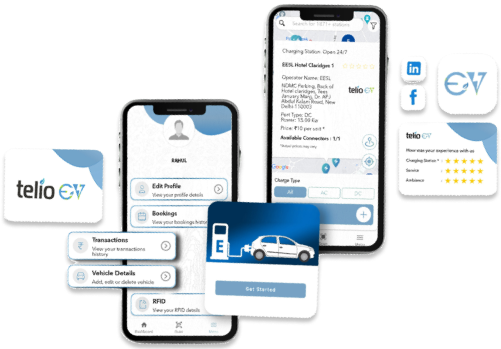Don't Fall to EV Charging Apps Blindly, Read This Article
Don't Fall to EV Charging Apps Blindly, Read This Article
Blog Article
Enhancing Electric Vehicle Charging with Advanced Management Software

The rapid adoption of electric vehicles (EVs) has actually demanded the advancement of efficient and user-friendly charging solutions. Central to this evolution are Electric Vehicle Charging Management Software (EV CMS) and EV Charging Apps, which improve the charging process for both operators and users.
Understanding EV Charging Management Software
EV Charging Management Software functions as an extensive platform that allows Charge Point Operators (CPOs) and other stakeholders to monitor, manage, and optimize EV charging stations. Key functionalities include real-time monitoring of charging stations, user authentication, payment processing, and energy management. By integrating these functions, the software makes sure effective operation and improves the user experience.
Key Features of EV Charging Management Software
1. Real-Time Monitoring and Control: Operators can supervise the status of charging stations, track energy consumption, and address issues promptly.
2. User Authentication and Access Control: The software manages user gain access to, making sure that just authorized individuals can use the charging facilities.
3. Payment Processing: It facilitates smooth deals, supporting different payment methods to cater to varied user choices.
4. Energy Management: By optimizing energy distribution, the software reduces functional expenses and supports grid stability.
5. Reporting and Analytics: Comprehensive data analysis aids in notified decision-making and strategic planning for network growth.
The Role of EV Charging Apps
EV Charging Apps are developed to provide EV owners with hassle-free access to charging facilities. These applications provide features such as finding close-by charging stations, real-time availability updates, navigation help, and remote monitoring of charging sessions. By enhancing availability and user engagement, these apps play an important role in promoting the adoption of electric vehicles.
Combination with Open Charge Point Interface (OCPI)
The Open Charge Point Interface (OCPI) is a standardized protocol that facilitates interoperability in between different EV charging networks. Combination with OCPI allows for smooth roaming, allowing users to gain access to several charging networks with a single account. This interoperability enhances user benefit and expands the availability of charging infrastructure.
Advantages of Implementing Advanced Charging Solutions
- Enhanced User Experience: User-friendly interfaces and trusted services increase client satisfaction and commitment.
- Operational Efficiency: Automation and real-time monitoring minimize manual intervention, lowering functional costs.
- Scalability: Advanced software solutions support the expansion of charging networks to fulfill growing demand.
- Revenue Generation: Flexible rates models and efficient payment processing Charging Station Management Software open new profits streams for operators.
Conclusion
The integration of EV Charging Management Software and user-centric EV Charging Apps is critical beforehand the electric vehicle community. These innovations not only enhance operations for service providers however also substantially enhance the charging experience for users. As the EV market continues to grow, the adoption of such sophisticated solutions will contribute in meeting the increasing need for effective and accessible charging facilities. Report this page